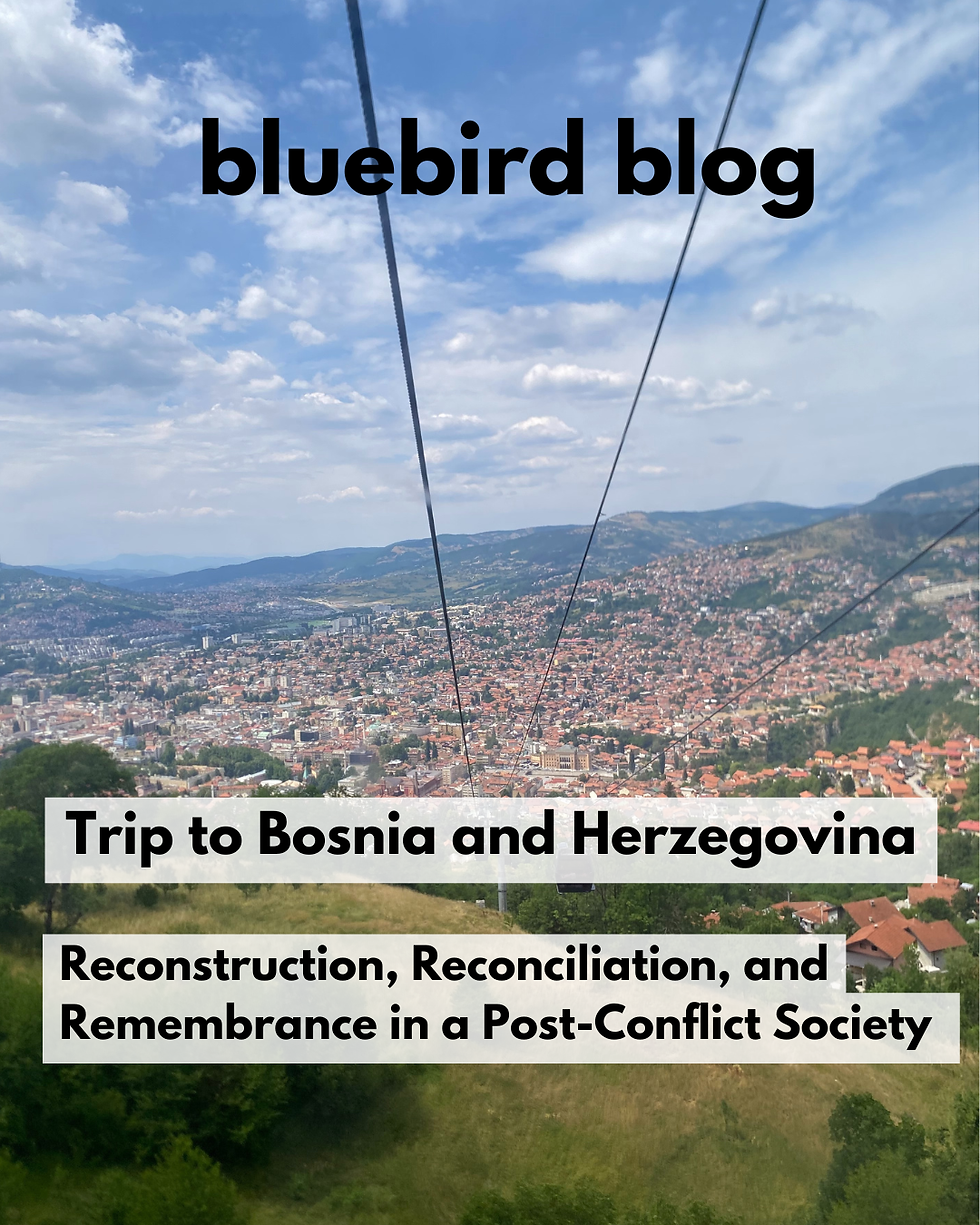Grimshaw Trip to Albania & Kosovo
- Grimshaw Club
- May 31, 2019
- 3 min read

Rough races in Albania’s and Kosovo’s aspiration to join the EU
Warm-hearted people, a truly welcoming culture, deep historical and political tensions – why do we not know more about these two countries?

On a continent where almost every little corner is explored, Kosovo and Albania still sound exotic. Thus, it is no surprise that we were asked multiple times why we chose these two destinations for our trip. Apart from many people missing out on the beautiful landscape and the unique combination of post-Soviet architecture, many do not know about the current political situation and its implied historical tensions. I can’t blame them since the exposure of Albanian and Kosovo affairs in the media is highly limited. Some newspapers reported on the cancellation of the end of June elections by Albania’s president claiming that the political situation does not allow for fair elections. However, further tensions in the country remain hidden – through the LSE delegation we tried to unpack them to grasp a more profound understanding.

Albania’s Opposition steps down, weekly protests in front of the parliament in Tirana grow, protesters being dispersed by police tear gas turns into a common scenario. These are factors we discuss in our first meeting with socialist Pandeli Majko, former prime minister and current minister for diaspora. Diaspora in the country is reflected in the numbers, revealing that more than 50% of Albanians live outside the country. Consequently, Albania faces a huge problem due to the flight of human capital. More and more young, educated people are leaving the country to seek better job opportunities abroad. What strikes our eye is that the phenomenon polarisation within the political landscape cannot be observed. Ironically, the political parties do not differ hugely, being united in their strong urge to enter the EU. Another common foreign policy objective is the NATO membership. However, corruption and the fragile justice framework holds them back so far. Especially the Netherlands and France need convincing that the enlargement of the EU will not bring more problems already causing turmoil in the EU. But what would Albania actually bring to the EU? “Tourism”, answers Grida Duma, member of the Democratic party. The EU Ambassador to Albania, Luigi Soreca, claims four key priorities in their attempt to join the EU which are the fight against corruption, the improvement of the justice reform, public administration and ultimately right protection. “Our efforts to trying to join the EU is like a heart transplantation, it takes courage and causes pain, it bleeds – we are in this process right now”, says Lugi Soreca.

On our car drive through a stunning mountain landscape to Pristina we are specifically interested in the independence of Kosovo gained since 2008, yet not being recognised by Belgrade and five EU countries. Upon the arrival, Shrill music blares from shops and facilities of street vendors, minarets are called to prayer. We have the chance to talk to Prime Minister Ramush Haradinaj, former prominent member of the Kosovo Liberation Army (KLA) to discuss the horrifyingly violent conflict between Kosovo and Serbia and the plan to reach a deal with Serbia. While Kosovan authorities believe 20,000 women were raped during the war only three cases have led to a conviction in Kosovan courts, with each resulting in an acquittal after appeal. However, there are positive impacts recognizable between Albania and Kosovo. In recent years Albanians across the country moved closer together. The cultural and media exchange is strong. Politically, Pristina and Tirana seem to have stronger relations in Rama's tenure. Since 2014, there have been regular meetings between the Kosovar and Albanian governments, and when Rama transformed his cabinet in the winter under pressure from student protests, he used two young Kosovars as foreign minister and minister of education respectively.

Apart from having had an intense schedule of in total 15 meetings, we are delighted to have deepened our understanding of these two versatile countries. Attending meetings with politicians from both parties enabled us to observe the bigger picture shaped by different perspectives. We are impressed by the culinary variety, the fancy interior designs of bars and restaurants and the local food culture. This month member states have to decide whether to give green light to Albania and Kosovo – which raises the question if both countries should tackle their reputation problem, a first step might be the attempt to grow and invest in tourism. We can say, this journey has shown us that the Balkan has a lot to offer!































Comments